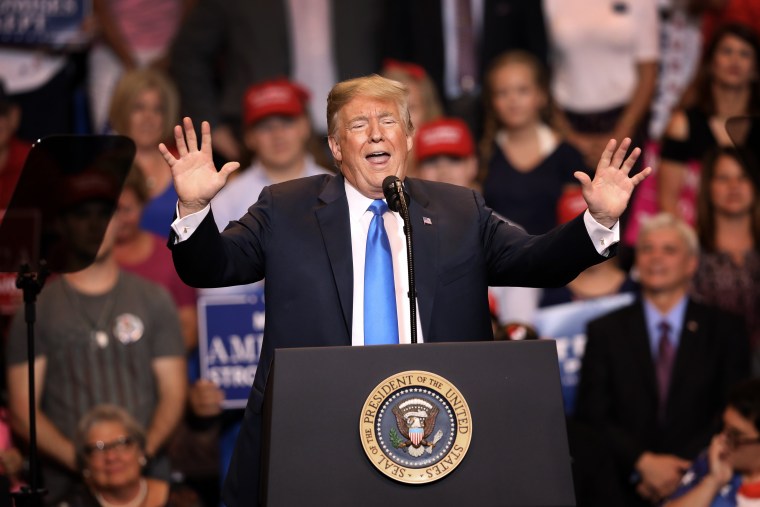The New York Times published an article this week on the timing of Donald Trump's reimbursement checks to Michael Cohen, and about halfway through the piece, the Times added an interesting tidbit, almost as an afterthought.
Indeed, some people close to Mr. Trump have privately predicted that he will ultimately choose to seek a second term in part because of his legal exposure if he is not president. While there is no legal consensus on the matter, Justice Department policy says that a president cannot be indicted while in office.
If you watch The Rachel Maddow Show regularly, you know that there is some debate about existing Justice Department guidelines on whether a sitting president can be charged with a crime. It's a complex issue, which has never been litigated in earnest.
For now, however, the prevailing assumption seems to be that Donald Trump, no matter how serious his alleged misdeeds, will not be indicted so long as he's president of the United States. To the extent that he'll be held accountable for possible transgressions, the remedy will be political -- in the form of the impeachment process, for example -- not legal.
All of which makes the point in the New York Times piece so notable.
By all appearances, Donald Trump is desperate to win a second term next year anyway, if for no other reason than to avoid looking like a loser in the eyes of the world and history. But if the Republican believes he has reason to fear an indictment -- on any number of possible crimes -- his interest in winning a second term will be that much more ferocious.
The election won't just be about politics at that point; it would also effectively be part of a criminal-defense strategy. Voters will be weighing whether to keep this president in office, but the electorate will also be voting on whether to subject him to prosecutors' scrutiny.
When Trump hits the campaign trail, and tells supporters, "I really need you to vote for me," it may very well be a plea with more than one meaning.
